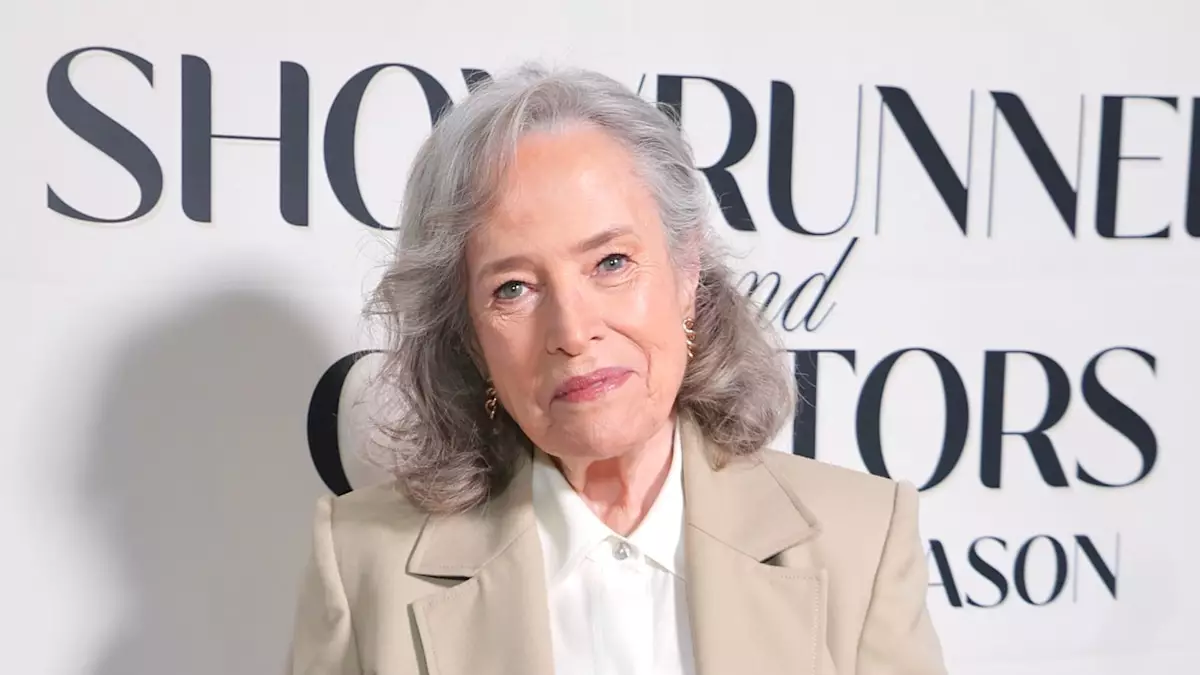Kathy Bates has never shied away from discussing the intricacies of her tumultuous career. With a talent that garnered her an Oscar in 1991 for the gripping role of Annie Wilkes in “Misery,” one would expect an unbroken trajectory of success from such a formidable thespian. Yet, Bates reveals that her journey of fame was not a flawless ascent but rather a rollercoaster laced with uncertainty and discomfort. In an intimate interview with Vanity Fair, she shared that even after winning the highest accolades, she faced an interim period filled with professional ambiguity and self-doubt.
Interestingly, it’s often in the shadows of triumph where we encounter the fiercest battles. Bates reminisced about the late Garry Marshall’s adaptation of “Frankie and Johnny.” Despite originating the role in the off-Broadway version, she found herself overlooked for the film, with Marshall opting for the stunning Michelle Pfeiffer. Here, one cannot help but notice the sting of rejection coupled with a blatant commentary on societal standards of beauty. Bates expressed that the oversight stemmed from an aesthetic bias: Marshall’s inability to envision her in a romantic scenario was a sobering reflection of the industry’s narrow definition of an on-screen leading lady.
The Weight of Appearance and Hollywood’s Narrow Lens
Kathy’s story amplifies a voice that too often goes unheard in Hollywood, a realm that has a disconcerting proclivity for valuing appearances over raw talent. This narrative sheds light on how deeply ingrained biases infiltrate casting decisions, underscoring the reality that actors can be summarily judged based on conventional looks instead of their craft. To hear Bates recount her father’s prior comments about her “non-conventional attractiveness” echoes an all-too-familiar story of many performers whose worth is often measured by superficial criteria.
Such instances not only contribute to an industry-wide problem but also resonate on a deeply personal level. Kathy candidly recounted the painful memory of a journalist questioning the believability of her character’s marriage to a leading man, casting a shadow on her own worth in the industry. The reality of experiencing such jarring scrutiny led her to retreat emotionally, a visceral reaction of vulnerability that speaks volumes about the psychological toll this occupation can impose.
A Weighty Transformation
Fast forward to recent years, Kathy Bates has undergone a physical and spiritual metamorphosis, losing over 100 pounds. This transformation is significant not merely as a personal achievement, but as a catalyst that rejuvenated her professional life. She articulated that her newfound health has made performing easier and more enjoyable, highlighting the profound impact that well-being can have on one’s artistic expression. The comment “I can move, I can breathe, I can have fun” is a testament to her resilience and a metaphorical shedding of not just weight but chains of past insecurity.
Kathy’s openness about her struggles with weight and sustainability taps into a broader theme about acceptance and self-love. The industry often lauds those who conform to certain physical standards while dismissing those who challenge the mold. Bates has not only confronted these challenges head-on but has emerged with an inspiring narrative that highlights the importance of taking control of one’s health and wellbeing, both mentally and physically.
Courage in Vulnerability
Drawing from her life experiences, Bates has become an advocate for authenticity in an industry that often promotes façades masked by makeup and glamor. Individuals in Hollywood, particularly women, face societal pressures to conform to idealized standards that can lead to detrimental mental health effects. Kathy’s willingness to publicly navigate her highs and lows is a courageous endeavor that encourages others to embrace their true selves, defying societal norms.
Through this lens, Bates becomes not just an actress, but a beacon of hope for those struggling with their self-image and acceptance. Her candidness reveals that the journey to self-acceptance is fraught with challenges, yet it’s in that very struggle where resilience is born. By sharing her story, Kathy Bates reminds us that vulnerability can lead to incredible strength and that one’s worth is inherently tied to perseverance and authenticity.

